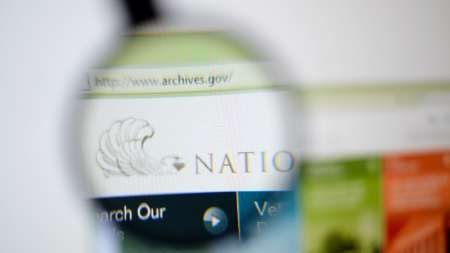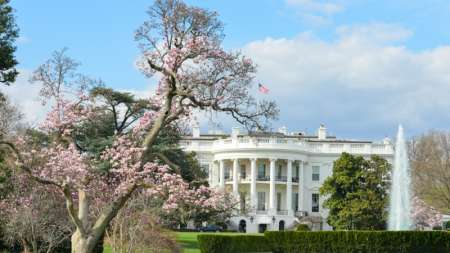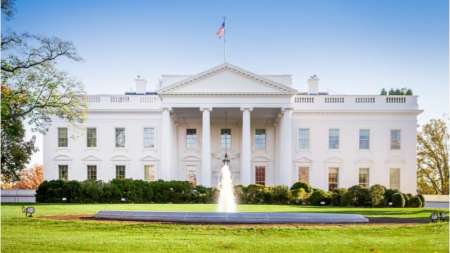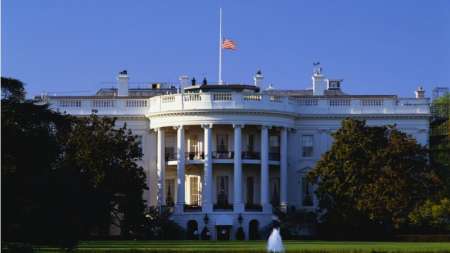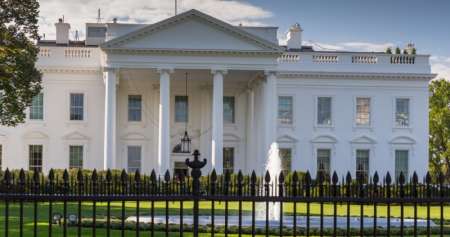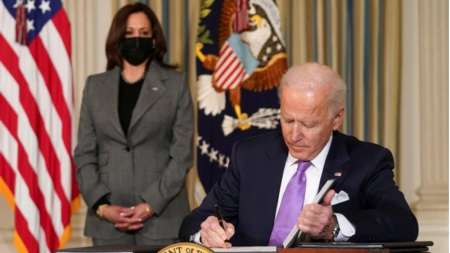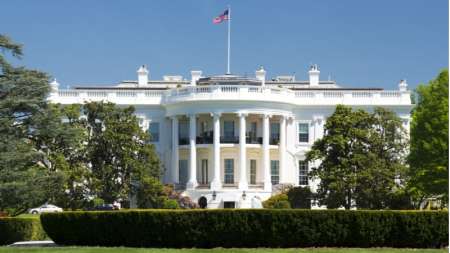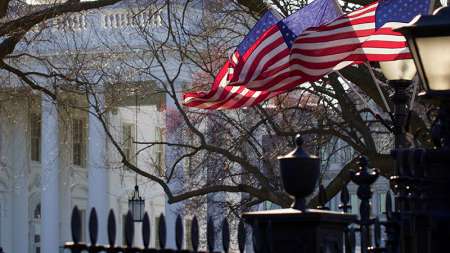A new report from the President’s Council of Advisors on Science and Technology (PCAST), which is set to be released next week, focuses on several strong use cases for artificial intelligence (AI) tools in scientific research. […]
The National Archives and Records Administration (NARA) has announced the opening of its new mass digitalization center in College Park, Md., which it said will help speed up the digitalization of important government documents like never before. […]
COVID-19 may never leave us entirely, but the White House took official steps last week to ramp down much of the preventative guidance it had put in place while the pandemic was raging in 2020 and 2021. […]
The U.S. Digital Service (USDS) partnered with the IRS to launch the new Direct File Pilot Program, which USDS Administrator Mina Hsiang said on Wednesday is an “incredibly exciting” customer experience (CX) achievement. […]
The White House’s Office of Management and Budget (OMB) issued updated guidance on April 4 to improve the management of Federal grants and financial assistance totaling more than $1.2 trillion each year. […]
Deputy National Cyber Director (NCD) for Technology and Ecosystem Security Camille Stewart Gloster will be departing her White House post on Tuesday, an NCD spokesperson confirmed to MeriTalk today. […]
The White House Office of Management and Budget (OMB) has published a set of revisions to its “Standards for Maintaining, Collecting, and Presenting Federal Data on Race and Ethnicity” – the first since 1997. […]
The White House Office of Management and Budget (OMB) today released its finalized policy document for the use of artificial intelligence (AI) within Federal agencies, delivering on-time a core component of the administration’s October 2023 AI executive order (EO). […]
Forty Democratic House lawmakers are urging the White House Office of Science and Technology Policy (OSTP) to focus on developing a robust Federal AI workforce as it begins its efforts to implement the Biden administration’s recent AI executive order (EO). […]
The White House Office of Science and Technology Policy (OSTP) has released a new national strategy that aims to strengthen the microelectronics research and development (R&D) innovation ecosystem within the United States. […]
The Biden-Harris administration approved a secure software development attestation form on Monday, taking a crucial step towards ensuring Federal contractors provide secure products to the Federal government. […]
President Joe Biden released his budget proposal for fiscal year (FY) 2025 today, allocating $13 billion in cybersecurity funding across the Federal government. This request includes an additional $103 million for the Cybersecurity and Infrastructure Security Agency (CISA). The March 11 document for FY2025 comes as Congress continues to work to pass spending bills for […]
President Biden is proposing a 2 percent pay raise for Federal civilian employees in his proposed fiscal year (FY) 2025 budget released on Monday, marking a significant decrease from last year’s 5.2 percent pay raise. […]
The Biden-Harris administration’s National Cybersecurity Strategy turned one year old on March 2, and the White House’s cyber lead touted that his office has been “working tirelessly” to coordinate implementation of the sweeping policy document. […]
Federal agencies last week released another series of equity action plans – featuring several notable technology-driven nuggets – that aim to continue advancing principles of the Biden-Harris administration’s equity agenda. […]
President Biden signed a new executive order (EO) today that looks to strengthen the cybersecurity of our nation’s ports, as well as bolster maritime cybersecurity and supply chains more generally. […]
The White House on Feb. 19 announced that the Commerce Department has signed a preliminary memorandum to provide $1.5 billion of direct funding approved by Congress via the CHIPS and Science Act to Malta, N.Y.-based GlobalFoundries. The company would use that money to bolster semiconductor production at three manufacturing sites in New York and Vermont. […]
The Office of Management and Budget (OMB) said today it launched its new Federal Program Inventory (FPI) website that allows users to search for information on more than 2,300 Federal programs that provide financial assistance. […]
The Biden-Harris administration expects to invest over $5 billion to launch a national semiconductor research consortium to bolster U.S. research and development (R&D) of computer chips. […]
During his first public address in Washington, D.C., today, the White House’s newly confirmed National Cyber Director (NCD) Harry Coker keyed on several initiatives ONCD has in the works to further implement President Biden’s National Cybersecurity Strategy (NCS). […]
The National Archives and Records Administration (NARA) will be rolling out a zero trust network access (ZTNA) solution as part of the next step of the agency’s zero trust implementation journey, an agency official said on Feb. 6. […]
The White House’s Office of the National Cyber Director (ONCD) published its 2023 End of Year Report on the Open-Source Software Security Initiative (OS3I) this week, highlighting four key areas the group made progress in over the last year. […]
The White House’s Office of Management and Budget (OMB) is requesting public input on how privacy impact assessments (PIAs) may be more effective at mitigating privacy risks that are further exacerbated by AI technologies. […]
The Biden-Harris administration announced its latest actions last week to expand access for small businesses to the over $700 billion spent through Federal contracts each year, particularly for those owned by individuals from underrepresented communities. […]
The National Archives and Records Administration (NARA) – the Federal agency charged with preserving all government records – has officially eliminated its 600,000-plus backlog of veteran records requests at the National Personnel Records Center (NPRC) in Saint Louis, Mo. […]
Former Senate Homeland Security and Governmental Affairs Committee (HSGAC) senior staffer Jeff Rothblum has landed a new cyber leadership position at the White House. […]
Jonathan Finch, acting director for digital experience in the Office of Management and Budget’s (OMB) Federal CIO office, said today that OMB is evaluating the utility of artificial intelligence technologies as it looks to execute on multiple directives to improve how the government provides digital services to citizens. […]
The White House has nominated Anne Wagner to serve as a member of the Federal Labor Relations Authority (FLRA), which is an independent Federal agency that focuses on promoting and establishing fair labor practices in the Federal government. […]
In his first public event since swearing in as national cyber director (NCD) late last year, Harry Coker this week announced several initiatives to “aggressively” fill vacant cyber positions within the Federal government, including conducting a series of cyber hiring sprints. […]
President Biden this week sent to the Senate two renominations that would fill out the three-member roster of the Merit Systems Protection Board (MSPB) and give the board a permanent chair to help it continue efforts to reduce a long-standing backlog of thousands of cases. […]


